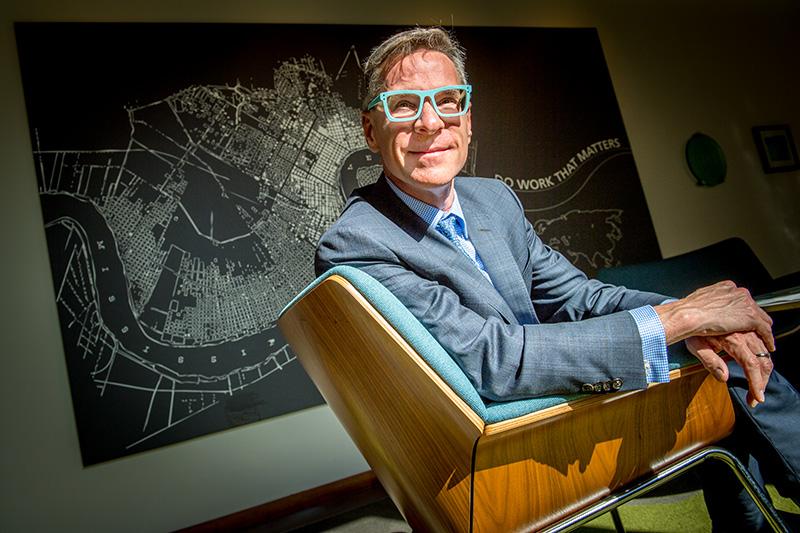Tulane dean recognized for work in virtual reality for addiction and autism
Patrick Bordnick, dean of the Tulane School of Social Work, has been honored for his work in the field of virtual reality.
Bordnick received one of five Not Impossible Awards Jan. 11 during the annual Consumer Electronics Show in Las Vegas.
The awards, powered by Avnet, one of the world's largest distributors of electronic components, recognize and celebrate people, companies, technology and transformational inventions that help bring positive change to the global community.
"The Not Impossible Awards show what is truly possible when we commit to figuring out how technology can make the impossible 'not impossible.'"
Mick Ebeling, founder and CEO of Not Impossible
Bordnick received the Not Impossible Vitality Award, sponsored by Blue Cross Blue Shield, for an innovation called VR-∆ and VR-Qualis Est Vita (quality of life). Still in development, the VR-∆ is designed to put patients into realistic virtual worlds using smartphone-based virtual reality, recreating situations that identify and trigger cravings akin to drug and alcohol addiction. The tool will allow for individualized patient diagnostics and aids in treatment by teaching coping mechanisms to avoid relapse.
VR-Qualis Est Vita repurposes the technology of VR-∆ and transforms it to create new environments for children and adults with autism to develop interpersonal skills.
The Not Impossible Awards is a program of Not Impossible Labs, which was founded in 2008 to help solve issues of inability and inaccessibility and provide low-cost solutions for those in need. Award winners will receive mentorship and resources to incubate and accelerate their work through participation in strategic partnerships across the Not Impossible network.
"I am honored to have my work recognized by Not Impossible, Blue Cross Blue Shield and AVNET," Bordnick said. "And I look forward to our work together."
He said the use of portable virtual reality on smartphones provides a needed tool for clinicians working with substance abuse patients and augments traditional intervention approaches to enhance therapeutic gains.

